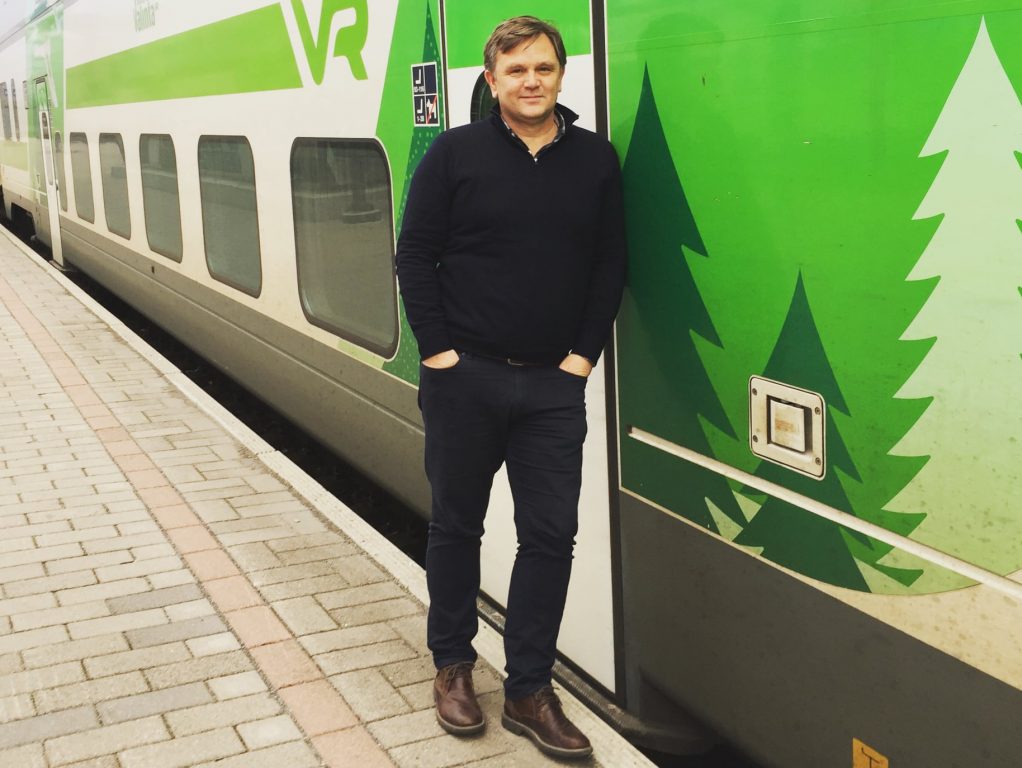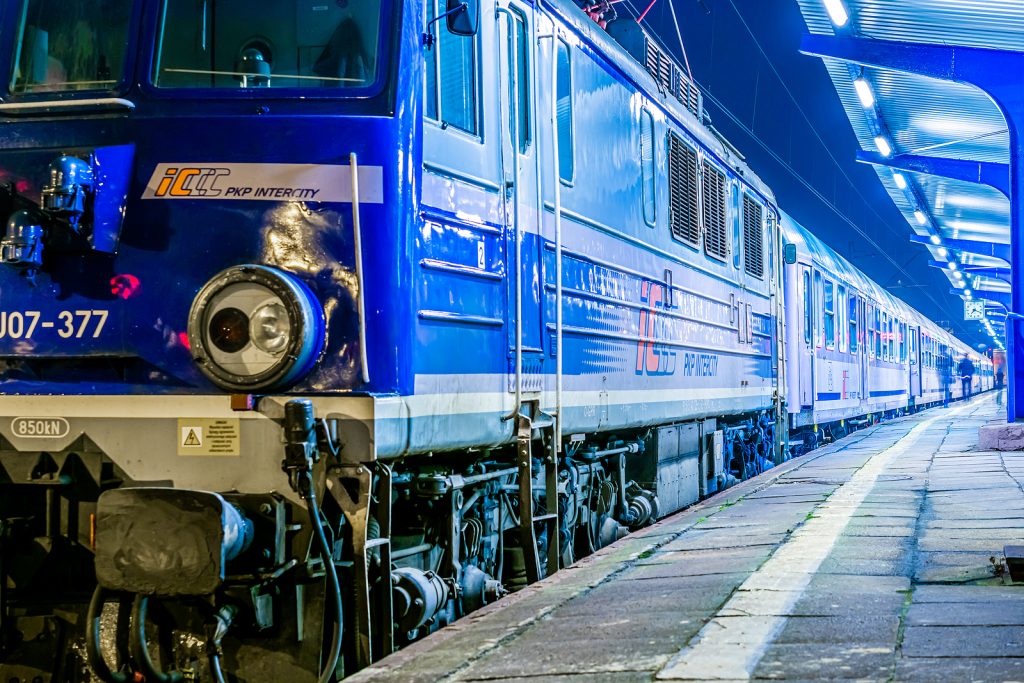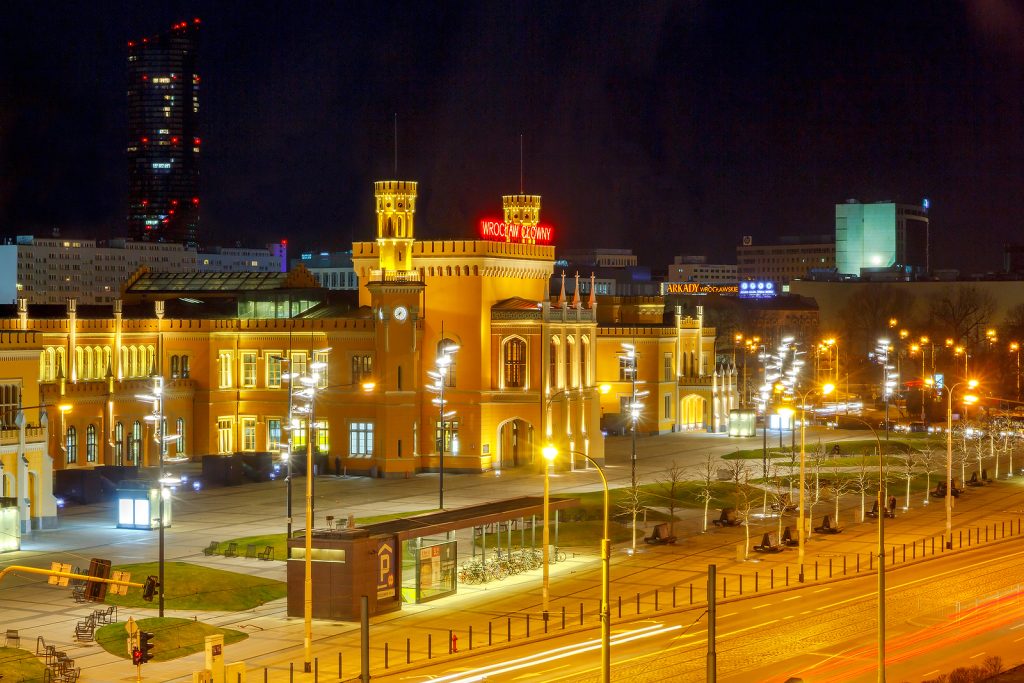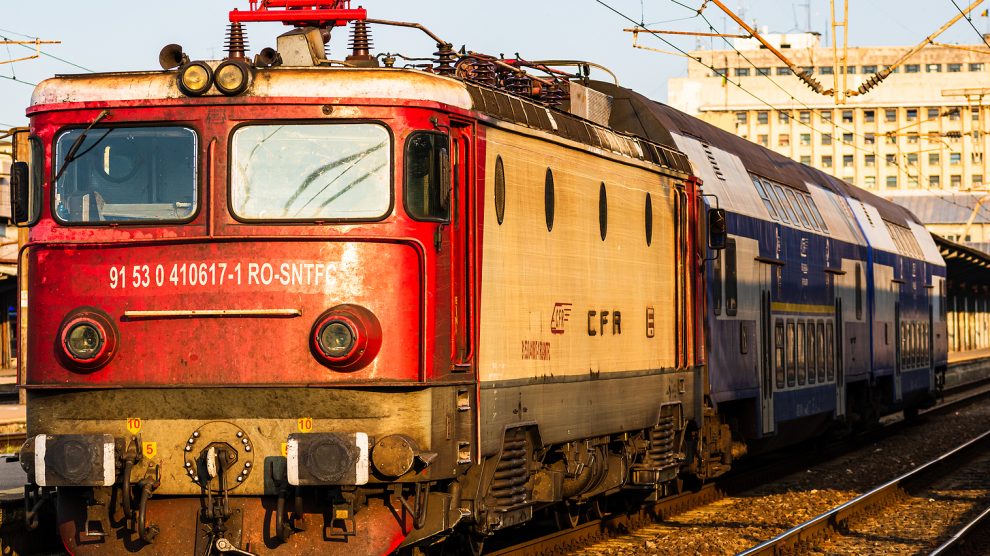Whisper it, but in parts of Central and Eastern Europe train services are improving, according to self-confessed train-geek Andy Brabin, currently travelling every passenger railway line in Europe. As for the on-board toilets, that’s often a different matter.
Few people are as well-qualified to talk about the current state of the railways in Central and Eastern Europe than Andy Brabin, who has spent much of the past few years travelling on trains as part of his All the Lines Europe project, in which he is attempting to travel every passenger rail line west of the Urals.
- A European Silk Road makes both economic and environmental sense
- Emerging Europe’s most remarkable railway stations
- Uzbekistan’s high-speed railways linking the past with the future
When I speak to him, Brabin is – for once – not on a train, but instead at his base in the north of England having flown back from Romania the day before, a country’s rail network he is close to completing.
“I still have a few things to mop up,” he says. “There will be one more trip to Romania as one line is currently closed for engineering works, and there’s a border crossing into Ukraine that has not had a service for a while due to Covid-19.”
Brabin has already travelled on virtually every passenger line in Western Europe. He says that the idea of travelling them all “just developed as time went on, beginning from my early days as an interrailing teenager”.
He admits that he was always fortunate to have jobs that allowed him to travel. He founded Railbookers in 2003, a travel agency specialising in holidays by train, and now runs Discover by Rail, using his unique knowledge to create carefully crafted dream trips – by train, of course.
Six years ago, he left London and became a full-time digital nomad, “working as I travel”.

‘Every train route through the Romanian mountains is fabulous’
Trains, Brabin tells Emerging Europe, offer an insight into countries: “their mentality, their attitudes”.
One of those attitudes – which he says becomes more apparent the further east he travels – is that the railways are all too often viewed as a last resort, to be used only if there is no alternative.
“I speak to a lot of people involved in the hospitality sector in the various towns and cities in which I stay, and they are always shocked to find out that I am travelling by train,” he says. “In Romania and Bulgaria especially, there is this mentality that trains are to be avoided.”
Given the sorry state of many trains in those countries, that is not altogether surprising – not that Romanian trains are without their attractions.
“Almost every train route through the Romanian mountains is fabulous,” says Brabin. “The scenery is stunning, which is an advantage because if you are on a train looking out, you are not looking in at just how terrible the trains are.”
As he is quick to point out, there are wide variations across the countries of Central and Eastern Europe, and some have made enormous progress in recent years in making their railways more attractive.
“In Czechia the trains are a pleasure,” he says, “and taking the train is a perfectly acceptable thing to do. The trains are reliable, the network is dense, well run, and well connected. And although you don’t have the high mountains of Romania or Bulgaria, there is some stunning scenery.”
Brabin also has words of praise for Poland.
“In terms of All the Lines Europe, Poland is a bit of a pain actually, but in a positive way: they keep reopening lines. Every time I think I have completed Poland, another line reopens.”
A lot of the funding for the improvements in Poland’s railways has come from the European Union, but this, says Brabin, ironically creates something of a problem.
“The excellent InterCity Express Premiums (EIPs) that run from Warsaw down to Kraków for example were paid for by the EU. But because that money was intended for Poland, and Poland alone, to spend, they can’t run across borders.”

‘Cross-border connections are missing’
This is a crucial point, he suggests, for when it comes to making trains in emerging Europe more attractive, particularly from the point of view of encouraging tourism, or at least rail-based tourism, it is a lack of cross-border connections that is the biggest problem.
“The networks are all run on national models, to service their national markets,” he says, pointing to the Baltics as an example.
“Rail travel within Estonia is pretty good: there has been plenty of investment, plenty of new trains. Likewise in Lithuania there are new trains on the Kaunas to Vilnius route. But try travelling across the Baltics by train and it is actually impossible, so once again you meet this attitude of ‘Why on earth would you take the train?’.”
Throughout much of the emerging Europe region, he says, cross-border connections are missing.
“There are plenty of flights between the countries of the region, but few trains. Coaches often take too long because of poor road infrastructure. So I think that the demand is there: it may not be obvious demand, but it is there. Build railways and people will start jumping on trains.”
Brabin says that he would like to see a special EU unit, partly dedicated to transport, partly to integration, responsible for stimulating these cross-border rail services.
“The EU can fund them, set them up on a commercial basis, after which they would hopefully become self-funding. Then the EU can step back having done its bit to integrate Europe.
“I think the EU is missing a trick.”

Toilets to forget
Brabin has no target date for completing his All the Lines Europe project.
“It’s an ongoing process,” he says. “It is a case of working further and further east. I still have a few gaps to fill in Slovenia, Croatia, Serbia. Then it’s a question of finishing Bulgaria and Romania, then Ukraine, Belarus, Russia.”
Moving further east should at least see an improvement in the standard of train bathrooms – which he reviews on his social media channels. Indeed, in Russia they are fine, he says. In Bulgaria, Romania, Moldova – and a few other places – that is not the case.
“It really is time for train operators to treat their customers with respect by providing them with decent bathrooms. It’s the key to any train for me: the bathroom. Not whether a train is delayed, but whether the bathroom is decent. It’s a critical part of the travel experience.”
He cites the recently reinstalled service that links Romania’s capital Bucharest with Chișinău in Moldova as an example of a train “that you can smell long before you see it, because of the toilets”.
“I just hope that during the hiatus Moldovan Railways has improved the carriages a little.”
You can follow Andy Brabin’s travels on Twitter, Facebook, and Instagram.
Unlike many news and information platforms, Emerging Europe is free to read, and always will be. There is no paywall here. We are independent, not affiliated with nor representing any political party or business organisation. We want the very best for emerging Europe, nothing more, nothing less. Your support will help us continue to spread the word about this amazing region.
You can contribute here. Thank you.







Add Comment